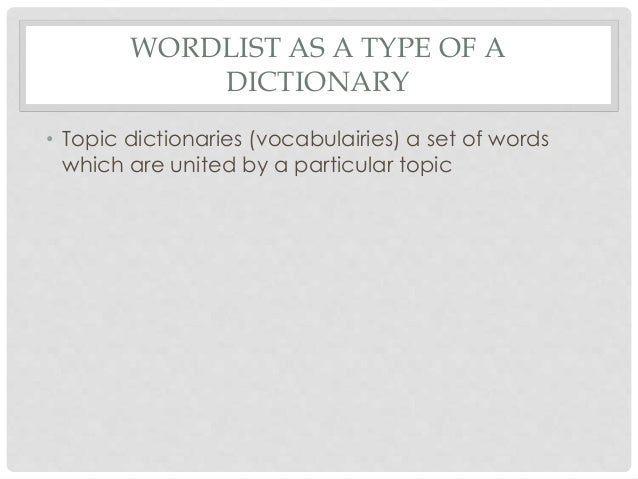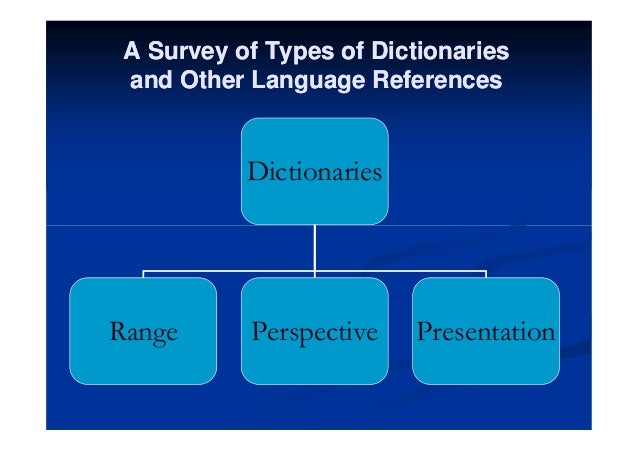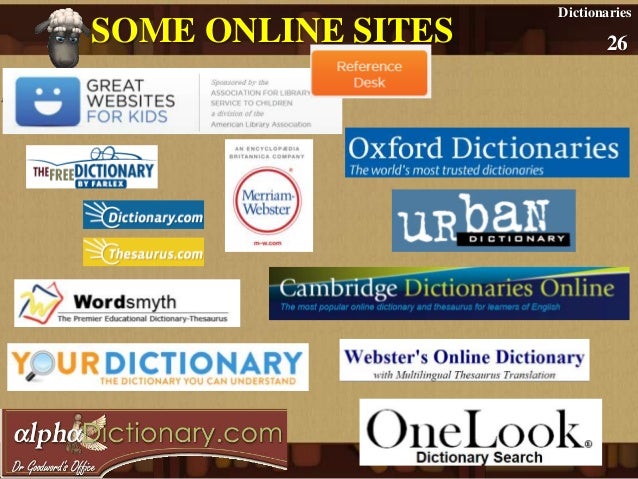

Some dictionaries include each separate meaning in the order of most common usage while others list definitions in historical order, with the oldest usage first. In a general dictionary, each word may have multiple meanings.

He also added American words, like "skunk" and "squash", that did not appear in British dictionaries.

Webster believed that English spelling rules were unnecessarily complex, so his dictionary introduced American English spellings, replacing "colour" with "color", substituting "wagon" for "waggon", and printing "center" instead of "centre". It was an attempt to evaluate the etymology of words, Webster learned twenty-six languages, including Old English (Anglo-Saxon), German, Greek, Latin, Italian, Spanish, French, Hebrew, Arabic, and Sanskrit. In 1806, American Noah Webster published his first dictionary, A Compendious Dictionary of the English Language. Johnson's dictionary remained the English-language standard for over 150 years, until the Oxford University Press began writing and releasing the Oxford English Dictionary in short fascicles from 1884 onwards.gjgj Many people today mistakenly believe that Johnson wrote the first English dictionary: a testimony to this legacy. It was not until Samuel Johnson's A Dictionary of the English Language (1755) that a more reliable English dictionary was produced. Schoolteacher Robert Cawdrey in 1604. John Wilkins' 1668 essay on philosophical language contains a list of 11,500 words with careful distinctions, compiled by William Lloyd. An early non-alphabetical list of 8000 English words was the Elementarie, created by Richard Mulcaster in 1582.The first purely English alphabetical dictionary was A Table Alphabeticall, written by English The earliest dictionaries in the English language were glossaries of French, Spanish or Latin words along with their definitions in English. The word "dictionary" was invented by an Englishman called John of Garland in 1220 - he had written a book Dictionarius to help with Latin "diction". In 1863 Vladimir Ivanovich Dahl published the Explanatory Dictionary of the Living Great Russian Language. The first edition of A Greek-English Lexicon by Henry George Liddell and Robert Scott appeared in 1843. It served as the basis for several bilingual dictionaries and was one of the earliest books (in 1460) to be printed. The Catholicon (1287) by Johannes Balbus, a large grammatical work with an alphabetical lexicon, was widely adopted. Glossaries with equivalents for Latin words in vernacular or simpler Latin were in use. The Qamus al-Muhit is the first handy dictionary in Arabic, which includes only words and their definitions, eliminating the supporting examples used in such dictionaries as the Lisan and the Oxford English Dictionary. 3rd century BC Erya, was the earliest surviving monolingual dictionary. The oldest known dictionaries were Akkadian Empire cuneiform tablets with bilingual Sumerian–Akkadian wordlists, discovered in Ebla (modern Syria) and dated roughly 2300 BC. A Chinese dictionary, the c.


 0 kommentar(er)
0 kommentar(er)
